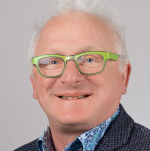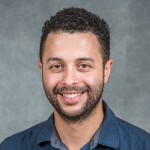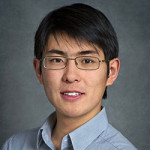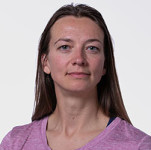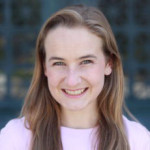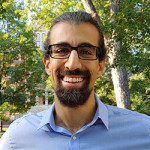To celebrate the ongoing success of the Luis W. Alvarez Fellowship in Computing Sciences, Berkeley Lab is hosting the first-ever, in-person Alvarez Symposium on June 15 at the Lab. During the day-long event, Fellows from years past will take the stage to share how being part of this program has influenced their careers and their research. The speakers will also discuss their current research focus, with particular emphasis on the future of scientific computing, including post-exascale computing, artificial intelligence, machine learning, and quantum computing.
Launched in 2002, the Alvarez Fellowship is supported in part by the DOE Office of Advanced Scientific Computing Research applied mathematics program and Berkeley Lab’s Laboratory Directed Research and Development program. For two decades, the fellowship has provided select Ph.D. students with the ability to work on grand challenges in computing sciences research at Berkeley Lab and make connections that impact them for a lifetime. Over their two-year appointments, Alvarez Fellows work closely with Computing Sciences Area staff to apply the latest technologies to computational modeling, simulations, and advanced data analytics for a spectrum of scientific applications: materials science, computer science, biology, astronomy, environmental science, energy, particle physics, genomics, and more. As a result, the fellowship also serves as a pipeline for these early-career scientists to move into careers at Berkeley Lab and beyond.
To date, 23 researchers have participated in the program; the two most recent Fellows are currently working at the Lab, bringing the latest total to 25. Over the years, these individuals have gone on to exciting positions in research, academia, and the private sector, and the numbers are impressive:
- 11 Fellowship alumni are still affiliated with a DOE national lab
- 4 have gone into industry
- 6 have received DOE early career awards
- 2 have been honored with National Science Foundation CAREER awards
- 1 received a Presidential Early Career Award for Scientists and Engineers.
“For two decades, the Alvarez Fellowship has cultivated exceptional researchers who have made unique contributions to science, high-performance computing, and the DOE Office of Science mission,” said Jonathan Carter, associate laboratory director for the Computing Sciences Area. “Their involvement has had a tremendous impact on the Computing Sciences Area and enabled us to both explore new research directions and deepen our expertise in our core capabilities. We are excited to celebrate the program’s success at the Alvarez Symposium in June.”
For more information about the Symposium, contact Dionne Myers, [email protected]. (Registration is now closed.)
“I was encouraged to apply for this fellowship in 2001 by R.D. Ryne, one of my few but most important mentors. Among other things, my time as an Alvarez Fellow led to a collaboration on HPC and accelerator modeling that still is ongoing. In fact, all of my U.S. collaborations started with this fellowship.”
— Andreas Adelmann, First Alvarez Fellow, 2002
Head of Paul Scherrer Institute’s Accelerator Modeling and Advanced Simulations Group; Lecturer in ETH Zurich Department of Physics
“When I was a grad student at the University of California, Santa Barbara, I visited Berkeley Lab one day to attend Fred Gustavson’s seminar. I fell in love with the lab and the city of Berkeley during that short visit and decided to apply for the best research opportunity available: the Alvarez Fellowship. The fellowship gave me the opportunity to expand my horizons, establish invaluable collaborations, and have the necessary freedom to contemplate my own future research program (currently parallel algorithms for sparse computations).”
— Aydin Buluç, Alvarez Fellow, 2010
Senior Scientist and Head of Berkeley Lab’s PASSION Lab; Adjunct Assistant Professor, EECS, UC Berkeley
“I was attracted to the Alvarez Fellowship for its unique opportunities to pursue research projects and tailor my research to my interests and needs. The potential for collaboration, mentorship, and professional development made the fellowship exciting and dynamic. Being part of this program has been invaluable to my career, allowing me to develop my technical and collaborative skills and make significant contributions to the field of electronic structure calculations.”
— Lin Lin, Alvarez Fellow, 2011
Professor of Mathematics, UC Berkeley; Faculty Scientist, Berkeley Lab
“I have always gravitated toward identifying problems and devising solutions without major guidance, and this fellowship was perfect for doing exactly that. Having the opportunity to carve out a research area for myself, present my methods at conferences, and collaborate with domain scientists helped me broaden my research interests and have an impact on real-world problems. It has been an invaluable opportunity.”
— Juliane Mueller, Alvarez Fellow, 2014
Group Manager, AI, Learning and Intelligent Systems, National Renewable Energy Lab
“I was attracted to the Alvarez Fellowship due to the emphasis on application of novel or large-scale computation to real applications. The program gave me the space to develop quantum computing applications and collaborations that jump started my career. While I didn’t eventually end up staying at the Lab, the collaborations I had inside and outside the Lab were instrumental for setting up my future positions and research directions, which have a strong bent toward quantum computing.”
— Jarrod McClean, Alvarez Fellow, 2015
Research Scientist, Google Quantum Artificial Intelligence Laboratory
“The Alvarez Fellowship was a great opportunity for me to be part of the Computing Sciences Area and make connections across the lab while developing my own independent research program. The experience was also a great launchpad for my career; the national lab fellowships are a very well-respected brand that folks in and outside the lab system recognize. Also, during my fellowship, lab management and my mentors really supported my research and helped me make important connections with people in DOE and at other institutions.”
— Tess Smidt, Alvarez Fellow, 2018
Assistant Professor of Electrical Engineering and Computer Science, MIT
“Several things attracted me to the Fellowship, including offering great freedom to pursue the research topics I was interested in. This has allowed me to iterate through various research ideas fairly quickly and focus on those that seem most promising, such as new methods for faster tensor decomposition. The Fellowship has also enabled me to continue research that I initiated during my Ph.D. studies and form collaborations with researchers at Berkeley Lab, UC Berkeley, and beyond.”
— Osman Malik, Alvarez Fellow, 2021
Post-doc, Lawrence Berkeley National Laboratory
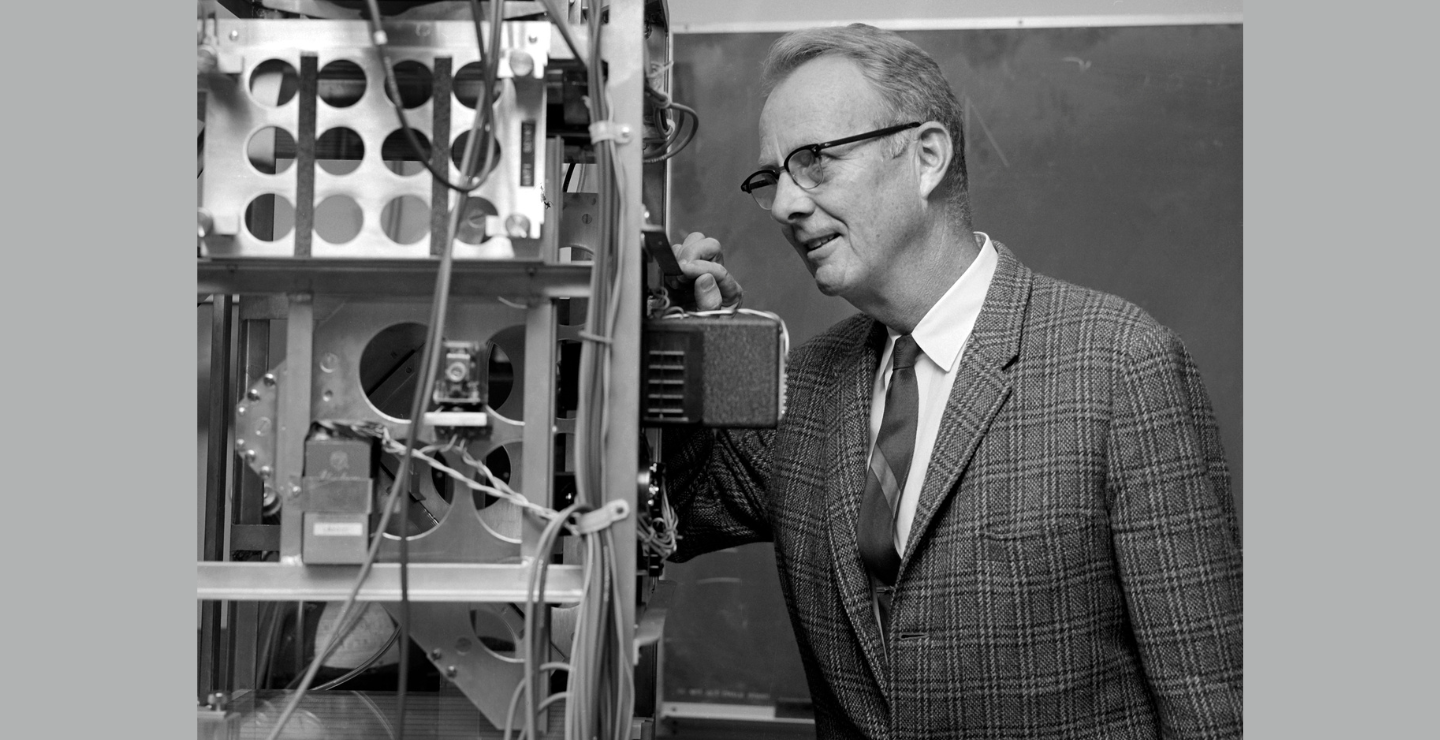
This fellowship was named in honor of Berkeley Lab Physicist Dr. Luis Alvarez, one of the first scientists to propose using computing devices to analyze experimental data, even before such computers were available.
In the 1950s, Dr. Alvarez opened a new era in high-energy physics research with his proposal to build a pressurized chamber filled with liquid hydrogen, known as the “bubble chamber,” to allow scientists to discover new particles and analyze their behavior. In his 1955 prospectus for such an experimental facility, he also proposed using computing devices to analyze experimental data, laying the foundation for the modern-day field of computational science.
By the 1960s, Dr. Alvarez’s vision had become a reality. His colleagues at Berkeley Lab used computers to track some 1.5 million particle physics events annually and developed scientific computing techniques that were adopted by researchers around the world. This effort led to Dr. Alvarez receiving the Nobel Prize for Physics in 1968.
During his time at Berkeley Lab, Dr. Alvarez led a team of physicists, graduate students, engineers, technicians, and programmers who used computers to address a variety of data analysis and engineering problems. His dedication to the scientific research community back then paved the way for students and researchers today to discover new ways to apply computational methods to a broad spectrum of science and address some of our most critical challenges.
About Computing Sciences at Berkeley Lab
High performance computing plays a critical role in scientific discovery. Researchers increasingly rely on advances in computer science, mathematics, computational science, data science, and large-scale computing and networking to increase our understanding of ourselves, our planet, and our universe. Berkeley Lab's Computing Sciences Area researches, develops, and deploys new foundations, tools, and technologies to meet these needs and to advance research across a broad range of scientific disciplines.


